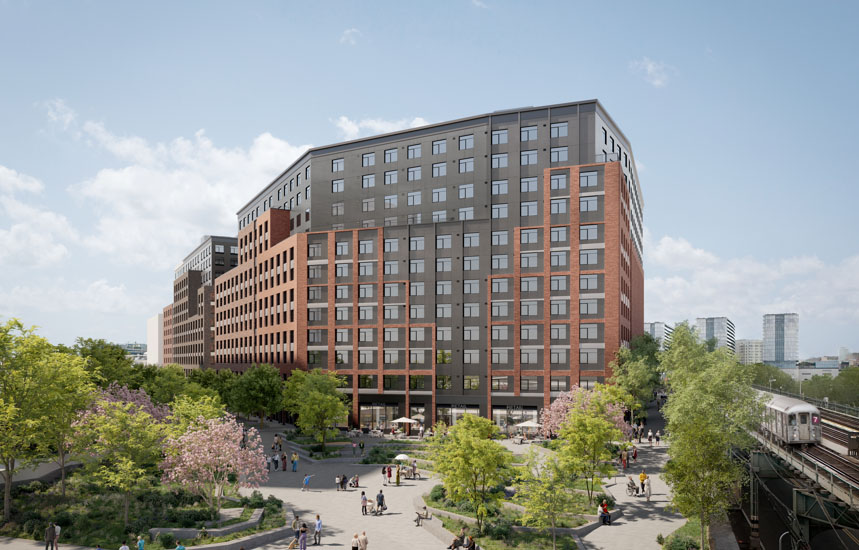Local Law 87 calls for a third party engineering firm to conduct on-site assessment and RCx - by Drew Ferraro
 Local Law 87 (LL87) is an extensive energy audit requirement that calls for a third party engineering firm to conduct an on-site assessment and retro-commissioning study (RCx). It cannot be done in house, and it’s much different than Local Law 84 benchmarking, which is a very simple submission of the buildings energy usage which can be done in house.
Local Law 87 (LL87) is an extensive energy audit requirement that calls for a third party engineering firm to conduct an on-site assessment and retro-commissioning study (RCx). It cannot be done in house, and it’s much different than Local Law 84 benchmarking, which is a very simple submission of the buildings energy usage which can be done in house.
A proper LL87 study takes several months to complete and is composed of a few parts. These include site visits, usually one in the summer and one in the winter to properly test the HVAC equipment in the appropriate seasons. During these visits, the law requires us to inspect for any retro-commissioning measures, which are items related to excessive energy loss, safety concerns, or functionality of equipment. The law requires us to report on these measures, and to instruct the building owner to have these corrected before our submission. Measures that aren’t corrected can jeopardize the submission and can even lead to violations being ensued because of failure to complete the entire LL87 scope of work within the required time frame.
There will also be a request for the previous 24 months of utility data. We can use the LL84 benchmarking entries for this, but it’s also helpful if we have the physical bills so that we can have the actual rate and cost consumption which will allow us to be as accurate as possible without having to make any assumptions.
Once our site visits have been completed, and all RCx measures have been completed, we can start to prepare the submission. This consists of 2 reports, Energy Audit Report and RCx report which are about 50-100 pages long each. There is also an Excel tool, as well as information in the Department of Building’s online submission portal that we are required to complete. We will then request the clients signature on two forms, EERC 1 & 2, which are part of the submission and are basically stating that our firm and the client are both being truthful to the city.
Once submitted, the Department of Buildings will respond within a few days requesting their $375 filing fee to be paid which must be a physical check mailed into the city.
Within a few months, the Department of Buildings will then respond saying that:
“This submission has been received and has passed initial review for completeness. If selected for a comprehensive review, notification will be sent and a request for a full report submittal will be made at that time.”
Projects can be selected for a comprehensive review anytime within the next 1-2 years. During these reviews, the Department of Buildings will issue a series of comments and objections, as well as revisions that need to be made to the reports. These can be technical related, or they can be related to requesting further proof and documentation to show that all required retro-commissioning measures were indeed completed before the submission time. Failure to show proof of this could result in a violation. They may also request an on-site visit to inspect for the completion of the retro-commissioning measures.
Per the new 2020 guidelines, the Department of Buildings is only going to issue objections three times, and if they aren’t resolved the third try (within a one year time frame) than a violation will ensue. They are also going to require additional proof to show that the RCx measures were indeed completed which includes date stamped photographs as well as any invoices or receipts.
If a violation is issued, it must be paid via certified cashier’s check or money order. They also request that all outstanding violations are paid before or during the time of submission, unlike LL84 Benchmarking where this rule doesn’t apply. It is possible to challenge a violation, but they typically will require some type of extenuating circumstance for this such as a property transfer or square foot dispute.
Unfortunately, not knowing about LL87 is not a good enough reason for violation dismissal, and they claim that it is the owners responsibility to be aware of all local laws and to file reports when they are due. Essentially, the Department of Buildings puts full responsibility on the owners to have this filed in a sufficient time frame, and asking for forgiveness will usually lead to the following response:
“Building owners are notified on their property tax bill three years prior and one year prior to being due for Local Law 87/09. The Department of Buildings also sent a reminder.”
Drew Ferraro is the director of operations at Yadav Solutions, Inc., New York, N.Y.
Related Cos. and Sterling Equities open housing lottery for Willets Point Commons


The CRE content gap: Why owners and brokers need better digital narratives in 2026 - by Kimberly Zar Bloorian







.gif)

.gif)
.jpg)
.gif)